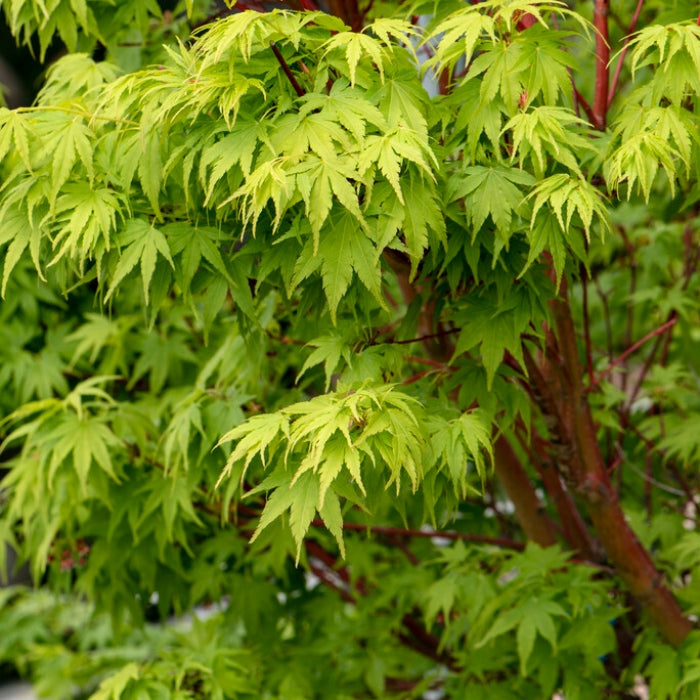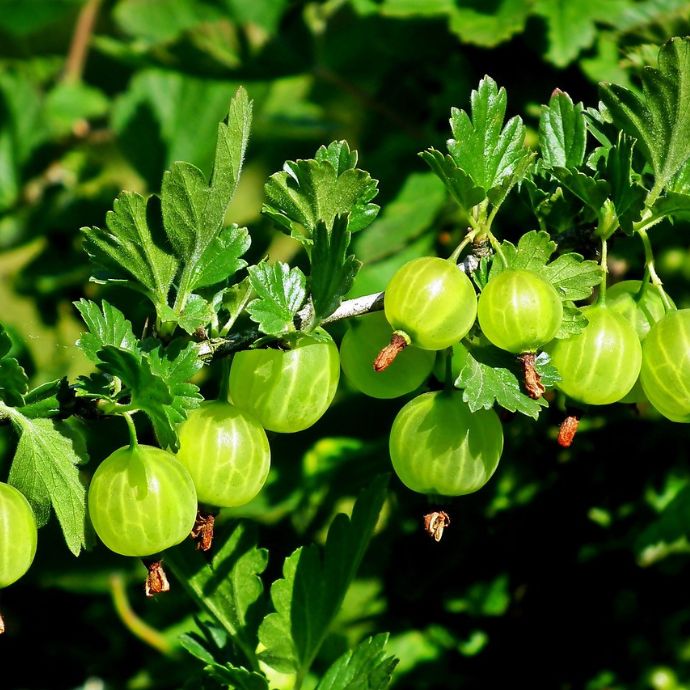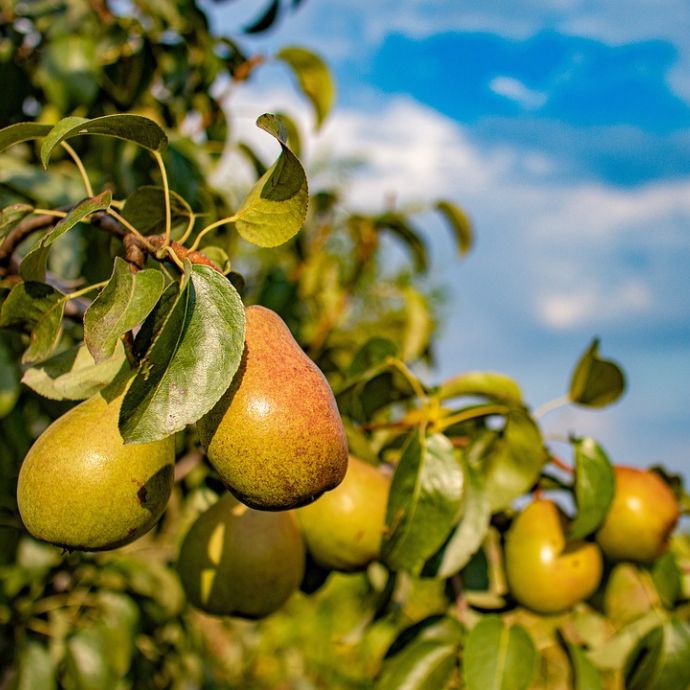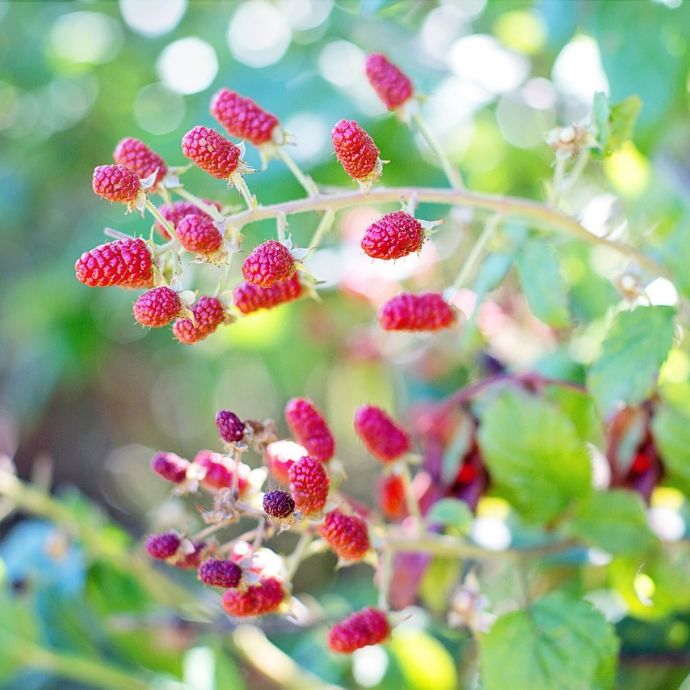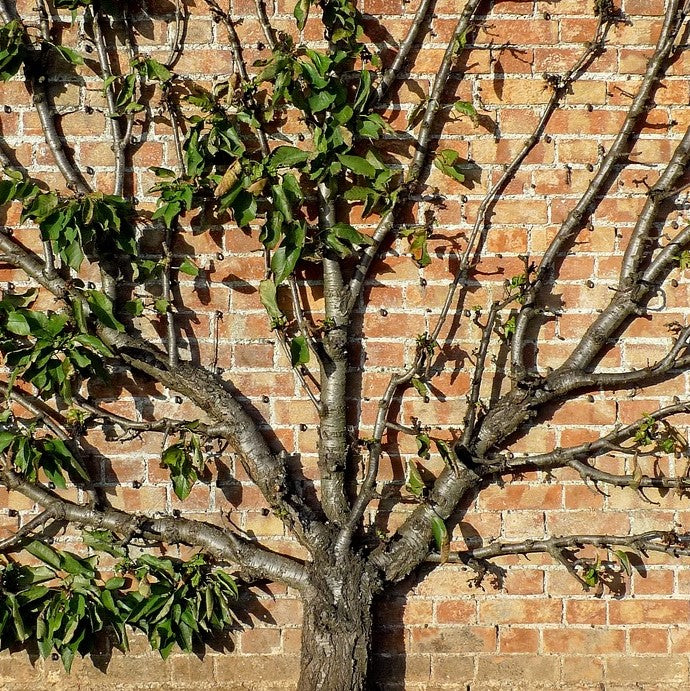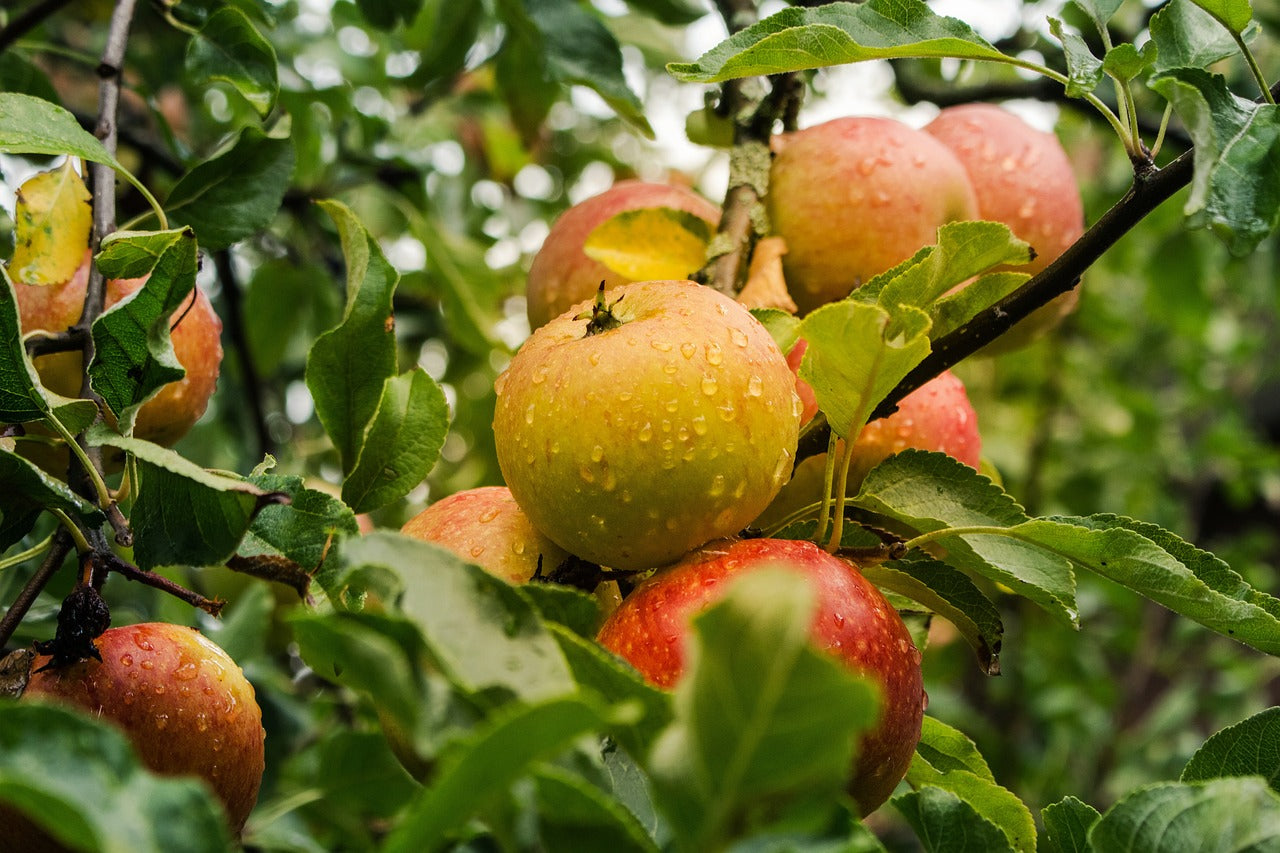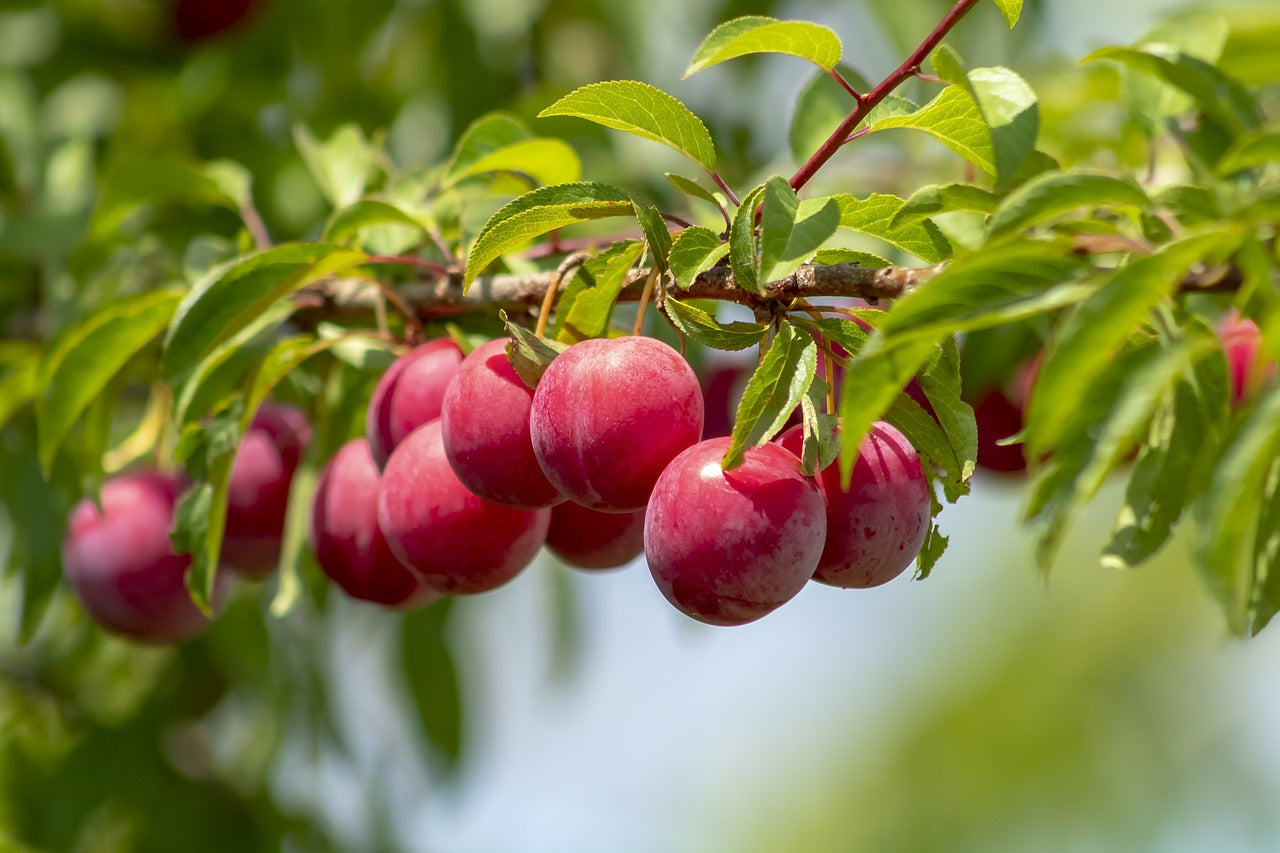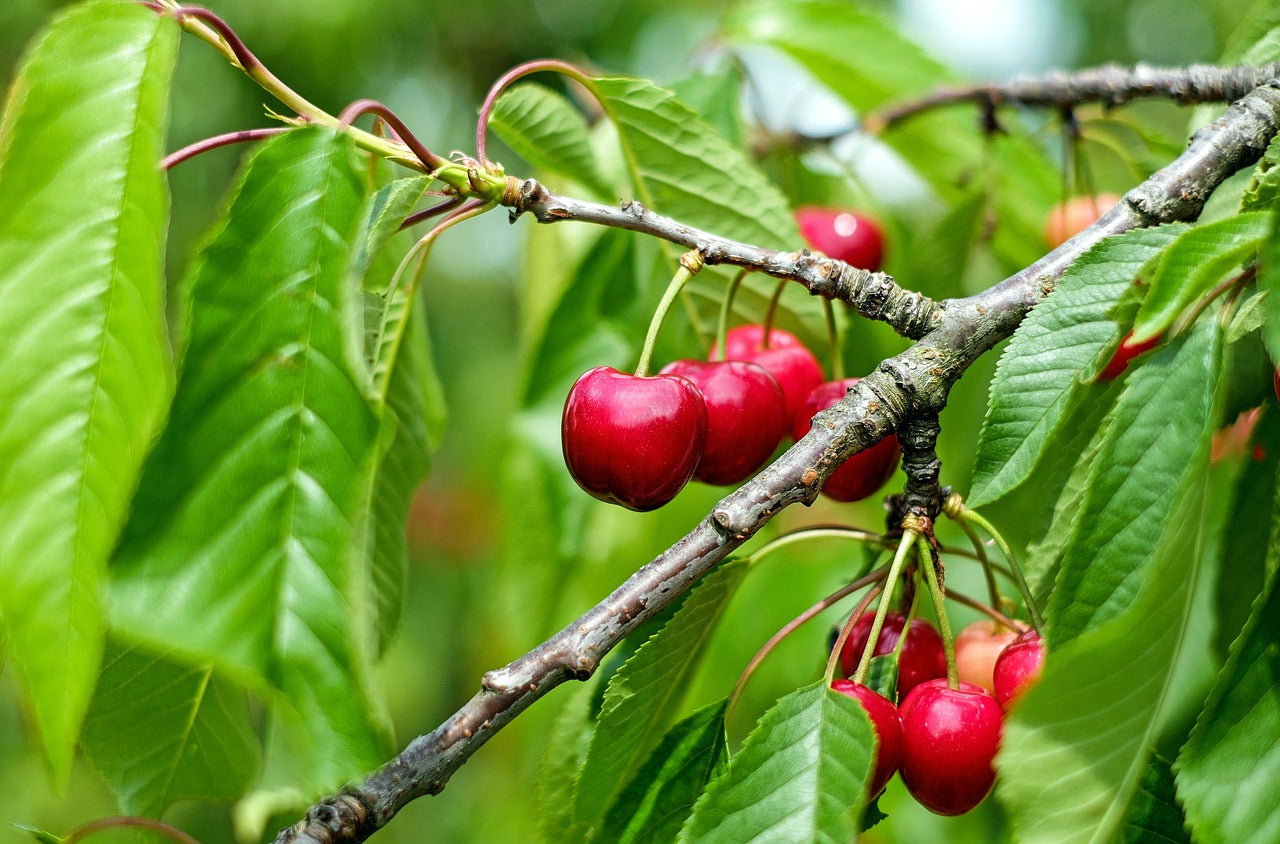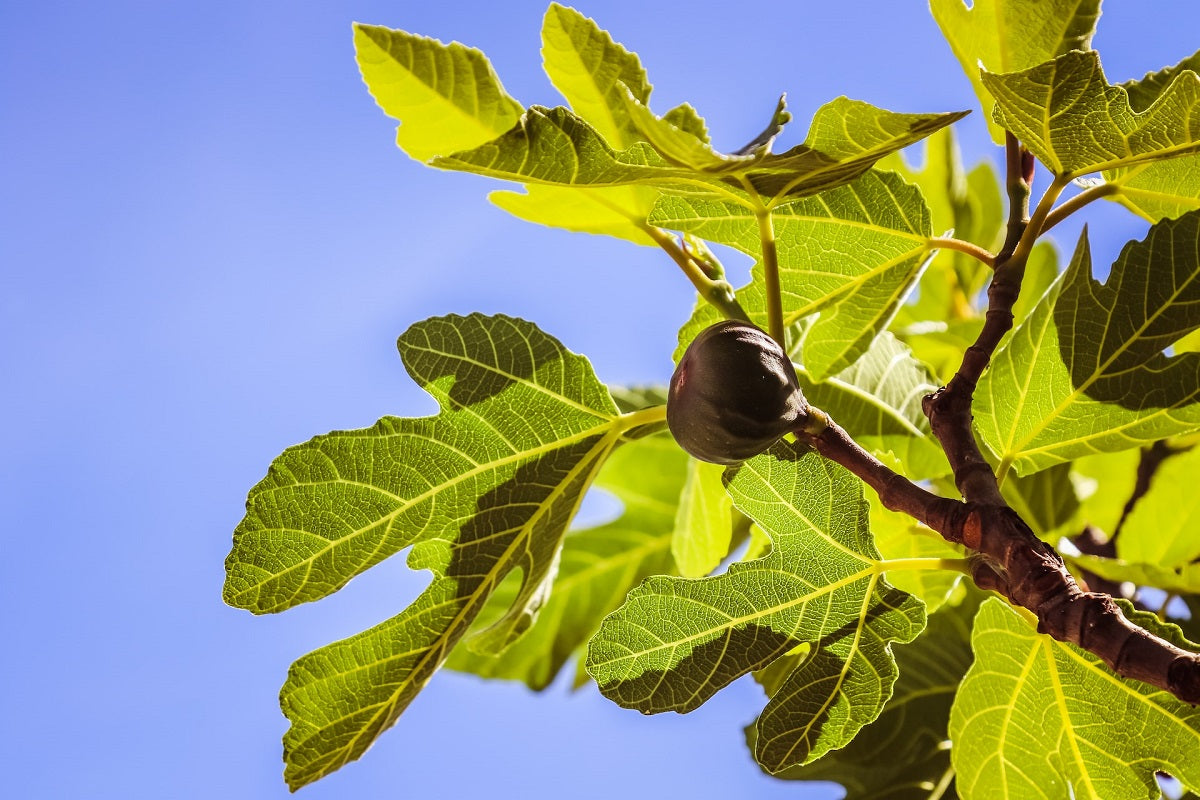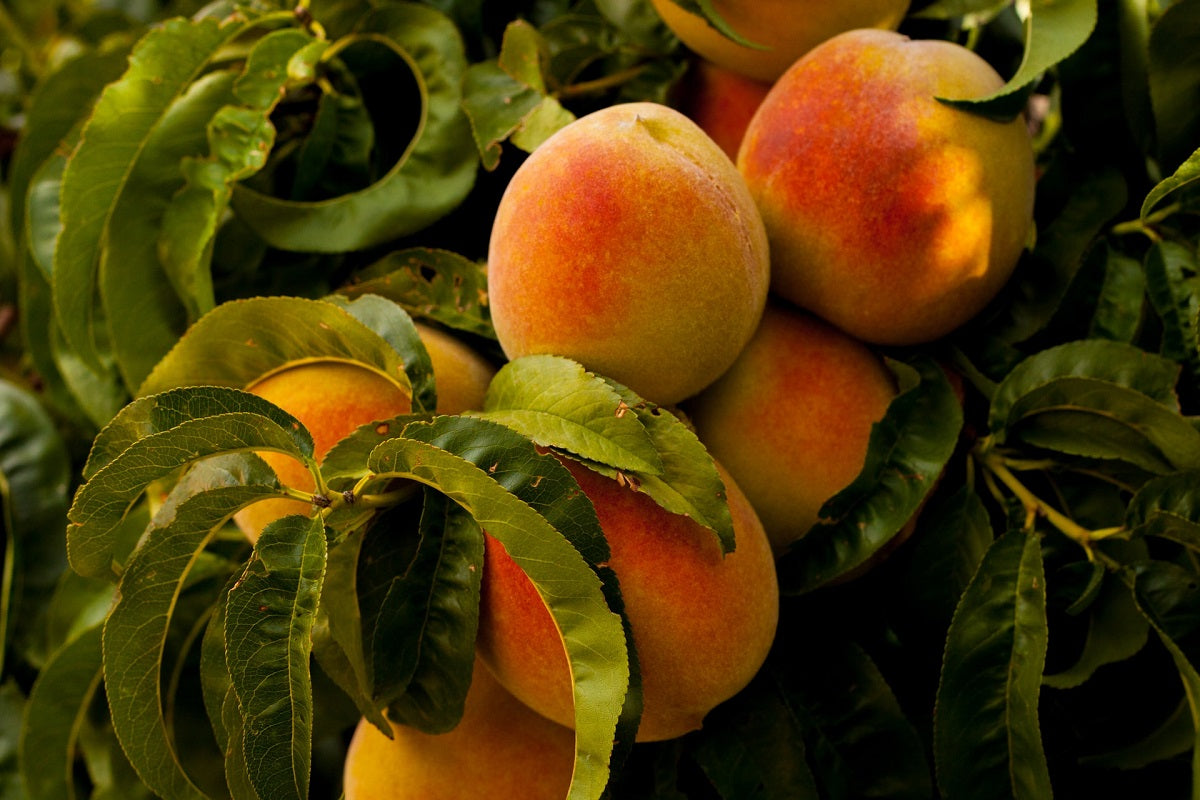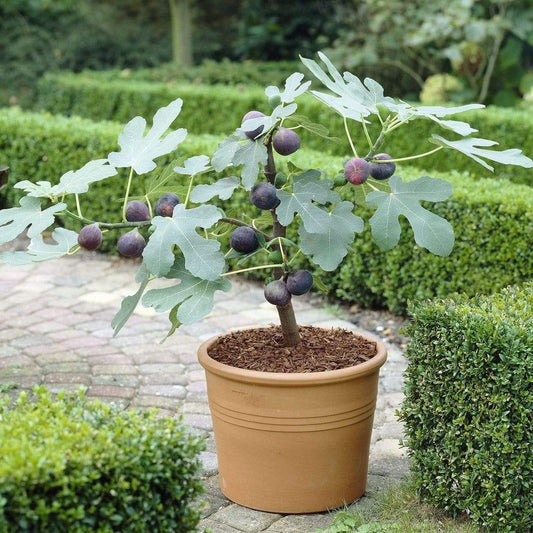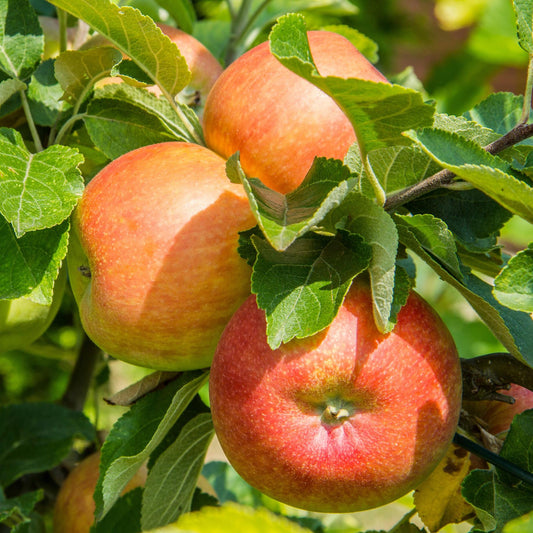What are the Easiest Fruit Trees to Grow in the UK?
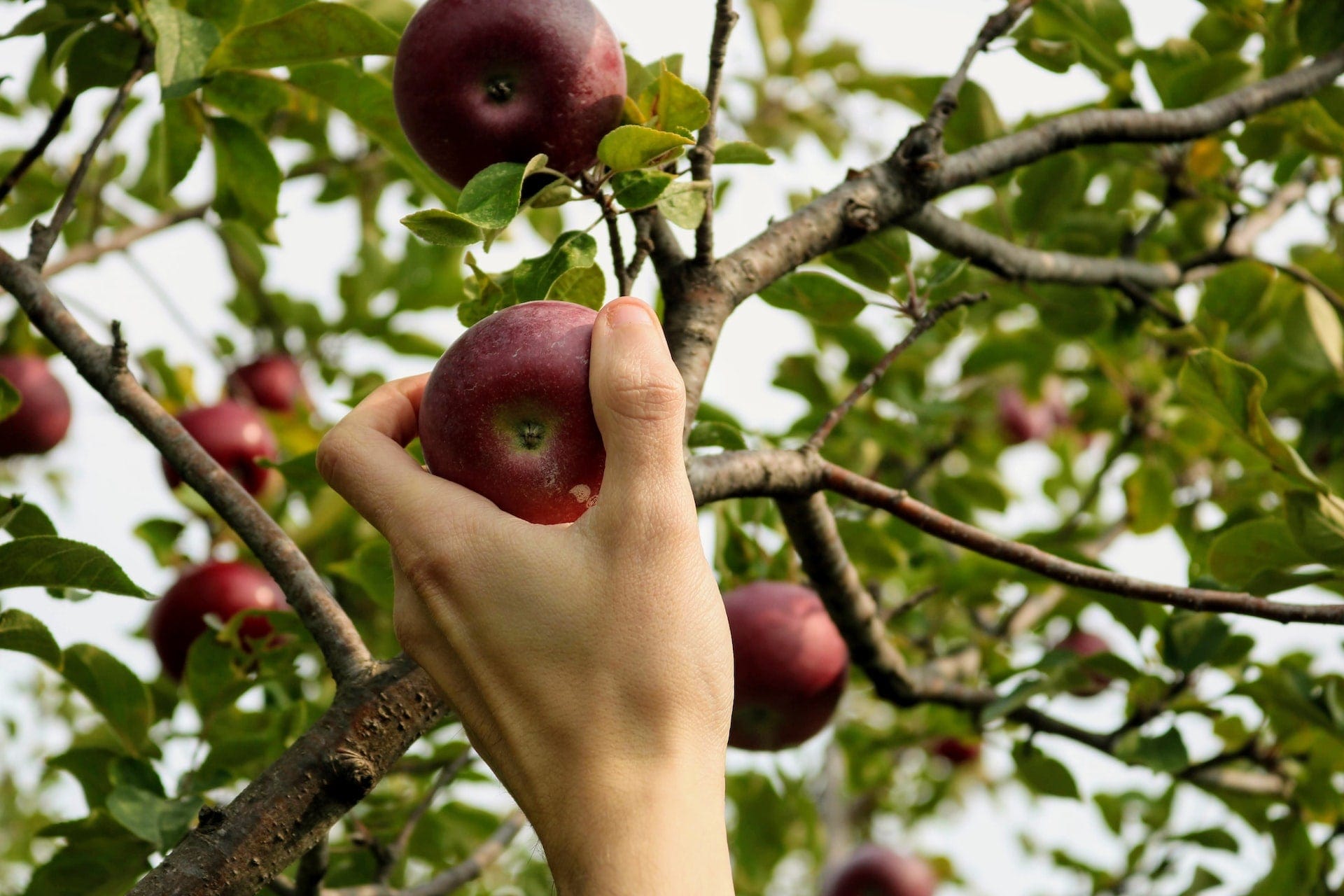
As more and more people join the grow-your-own revolution, one of the questions we get asked more than any other is what are the easiest fruit trees to grow? Luckily we have one of the UK’s biggest fruit tree growers on hand, Danielle. She grows over 100 different varieties of fruit trees on the nursery, so who better to ask? If you're in a hurry, then we'd recommend an apple tree as the absolute easiest fruit tree to grow, but there are plenty of other good options, too!
Jump to:
- Apple trees
- Pear trees
- Plum trees
- Cherry trees
- Fig trees
- Apricot trees
- Peach trees
- What makes a tree easy to grow?
- How to make growing fruit even easier
What are the easiest fruit trees to grow?
1. Apple trees
Danielle recommends apples above any other fruit if you’re looking for guaranteed fruit growing success. They're well-suited to our climate, can tolerate nearly all soils and resist the majority of pests and diseases.
You won’t have to wait too long either; apple (and pear) trees produce a large crop of fruit in even the wettest of summers and coldest of winters, from an early age. You also don't have to worry about pigeons or wasps eating your crop like cherries or berries.
"Our absolute favourite apple and the one we think is the best variety for beginners or small gardens is Discovery." Sweet-tasting and good for eating or cooking, it’s also one of the earliest varieties to crop (as early as August).
For great cropping ability, Bountiful is hard to beat. Our grower also loves Pixie (“very underrated”), Grenadier (“for perfect pies”) and Fortune (“great for kids”).
2. Pear trees
Danielle says “you’ll be fine with any pear tree, really, they’re one of the easiest and most reliable and they tend to be resistant to the diseases that a lot of fruit trees struggle with.”
Danielle's recommendation is the 'Green Williams' Pear. It’s possibly the richest and juiciest pear you can get, which also works well in cooking. If you want something a bit smaller, go for a patio or cordon 'Conference' pear.
3. Plum trees
'Victoria' is the nation's favourite variety for a reason: it tastes great, isn't bothered by damp, cold or partial shade, and you can get a dwarf version that does really well in pots. Danielle says, “it’s the best plum by a long way”. As long as you plant your plum tree in really well-draining soil so that it doesn’t get waterlogged, then it will grow very happily.
4. Cherry trees
Cherry trees are perfect if you don’t have much space! 'Morello' is a lovely sour cooking cherry, or for sweet cherries 'Stella', 'Sunburst', 'Sweetheart' are popular and really good for eating. All of these are self-fertile and can be grown in pots. Danielle reckons that 'Burlat' is a very underrated variety, and points out that cherry trees are also really good for wildlife.
5. Fig trees
You might not have thought you could grow figs in the UK, but 'Brown Turkey' makes it look easy. Danielle says, “Brown Turkey grows well - it’s resistant to most pests and diseases and it crops better than any fig in the UK. It’s compact - you can grow it in a pot or train it up a wall - and I think it’s got the best taste of any fig.”
6. Apricot trees
If it’s got ‘Cot’ in the name - 'Flavourcot' or 'Tomcot' - you can pretty much guarantee it’s going to be good! All of the ‘Cot’ varieties were specially bred for growing in the UK and the results are excellent.
They’re ideal for pots, as is 'Early Moorpark'. If you put them on wheeled pot bases, it’ll be easier to move them indoors over the winter, but you can also wrap them in fleece or bubble wrap and that’ll do the job. It’s a little bit of extra work, but worth the effort. All our apricot trees are self-fertile, too.
7. Peaches and nectarines
Peaches and nectarines can be difficult to grow unless you have a nice sheltered spot or ideally a greenhouse or conservatory. To make it easier, go for 'Avalon Pride' - it flowers later than others, meaning there is less risk of frost destroying the buds before they can turn to fruit. It’s even easier if you grow it in a pot, then you can move it indoors during the winter.
What makes a fruit tree easy to grow?
1. Low-maintenance
The less time you need to spend on tree maintenance, the more you’ll have for making plum crumble, so this is important. Unless you particularly want a new hobby of tree pruning, it’s best to avoid a tree that needs a lot of it (or that grows very rapidly).
A lot of fruit trees come in at 3m or under, which is ideal for a small garden and means you won’t be spending your weekends up a ladder.
2. Hardiness
Some trees need winter protection and some are hard as nails, so if you don’t want to be bothered with wrapping your tree in fleece or bringing it indoors over winter, go for a fully hardy variety, especially if you’re in a colder area of the UK.
A lot of these hardier trees are UK native species, or have been grown here for centuries, so you can be confident that they’ll tough it out whatever the weather. We've included apricot trees in our list just because they’re so surprisingly easy, but they will need a bit of winter protection.
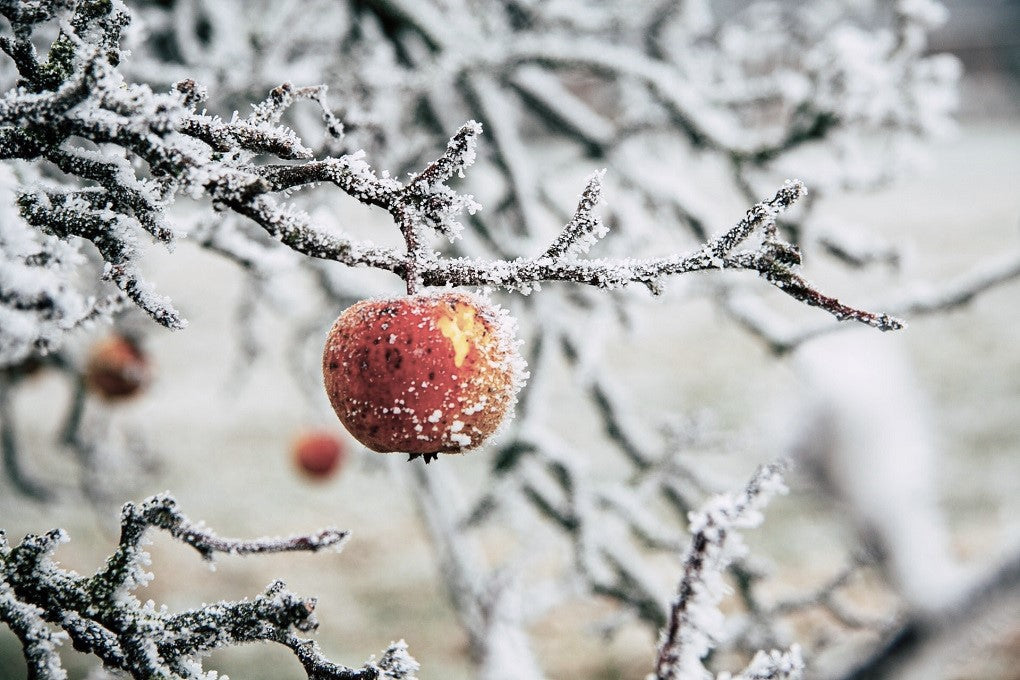
3. Pest and disease resistance
Because who wants to spend precious cherry-eating time worrying about phytophora root rot? All of our fruit trees have been grafted from quality rootstocks and grown in the field for better pest and disease resistance, but some varieties are more resistant than others and some are pretty much never bothered by either.
4. Self-pollination
Some fruit trees need another tree nearby to fertilise each other and produce a crop - these are known as pollination partners. However if you only have space for one tree, it’s simpler to go for a self-fertile variety which doesn't need a partner.
In most areas, it’s very unlikely that there won’t be another apple, pear or plum tree within a short distance of your garden, but if you’re in a quieter area without neighbours, then it’s a good idea to choose something self-fertile just to make sure.
How can I make growing fruit trees even easier?
There are a few things you can do to increase your chances of success and make your fruit tree growing even easier.
1. Grow in pots
Many fruit trees are now being bred especially for small spaces and growing in pots, meaning that you don’t have to have a massive garden to grow your own. You’ll have to be a little more vigilant with watering and feeding, but the pay off is a much more manageable tree that’s easier to pick from.

2. Prepare your soil
Make sure your soil is weed-free, full of nutrients and drains well. To ensure this, you can add some compost and a little horticultural grit (or perlite) to the planting hole. For more tips, read our complete tree planting guide.
3. Choose a sunny spot
Most of the fruit trees we’ve chosen are fine with a little light shade, but you’ll get the best fruit crops if you plant in a sunny, sheltered spot away from winds that could damage the blossom.
4. Attract bees
Another tip for good crops is to attract insects like bees who will pollinate your tree, resulting in more fruit. Plant nectar-rich perennials like lavender, nepeta, verbena and echinacea under or near to your tree and watch them rock up.
5. Choose bare root
From November to March, trees are dormant (not in active growth) and can be dug up and replanted with a minimum of root disturbance. They’re called bare roots because they’re transported without a pot or compost.
These trees establish quickly and need less care as they grow strong root systems over the winter. They’re also cheaper, due to the reduced transport costs!
Final thoughts
For more advice, read our guide to choosing a tree - and remember we’re more than happy to help with any questions you might have - just get in touch via support@rootsplants.co.uk.
Last updated: 17/10/2025
